Related Research Articles
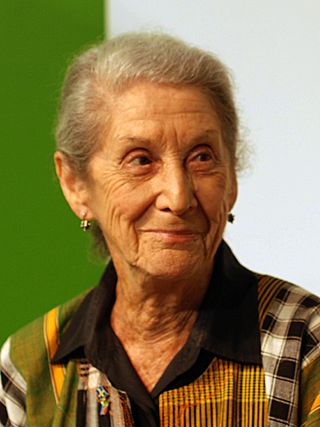
Nadine Gordimer was a South African writer and political activist. She received the Nobel Prize in Literature in 1991, recognized as a writer "who through her magnificent epic writing has ... been of very great benefit to humanity".

Nontsikelelo Albertina Sisulu was a South African anti-apartheid activist, and the wife of fellow activist Walter Sisulu (1912–2003). She was affectionately known as "Ma Sisulu" throughout her lifetime by the South African public. In 2004 she was voted 57th in the SABC3's Great South Africans. She died on 2 June 2011 in her home in Linden, Johannesburg, South Africa, aged 92.
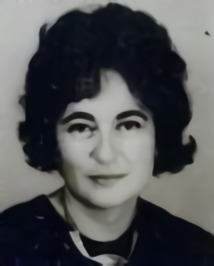
Heloise Ruth First was a South African anti-apartheid activist and scholar. She was assassinated in Mozambique, where she was working in exile, by a parcel bomb built by South African police.

Helen Beatrice Joseph was a South African anti-apartheid activist. Born in Sussex, England, Helen graduated with a degree in English from the University of London in 1927 and then departed for India, where she taught for three years at Mahbubia School for girls in Hyderabad. In about 1930 she left India for England via South Africa. However, she settled in Durban, where she met and married a dentist, Billie Joseph, whom she later divorced.

Apartheid was a system of institutionalised racial segregation that existed in South Africa and South West Africa from 1948 to the early 1990s. Apartheid was characterised by an authoritarian political culture based on baasskap, which ensured that South Africa was dominated politically, socially, and economically through minoritarianism by the nation's dominant minority white population. According to this system of social stratification, white citizens had the highest status, followed by Indians and Coloureds, then Black Africans. The economic legacy and social effects of apartheid continue to the present day, particularly inequality.
Percy Yutar was a lawyer who became South Africa's first Jewish attorney-general. He is most noted as the state prosecutor in the Rivonia trial in which anti-apartheid activist Nelson Mandela and seven others were convicted of sabotage and sentenced to life imprisonment.
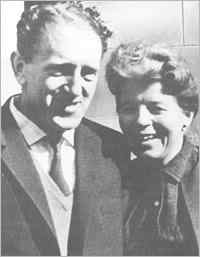
Hilda Bernstein was a British-born author, artist, and an activist against apartheid and for women's rights.
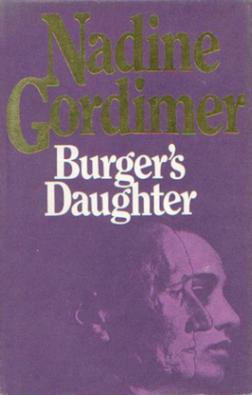
Burger's Daughter is a political and historical novel by the South African Nobel Prize in Literature-winner Nadine Gordimer, first published in the United Kingdom in June 1979 by Jonathan Cape. The book was expected to be banned in South Africa, and a month after publication in London the import and sale of the book in South Africa was prohibited by the Publications Control Board. Three months later, the Publications Appeal Board overturned the banning and the restrictions were lifted.

Internal resistance to apartheid in South Africa originated from several independent sectors of South African society and took forms ranging from social movements and passive resistance to guerrilla warfare. Mass action against the ruling National Party (NP) government, coupled with South Africa's growing international isolation and economic sanctions, were instrumental in leading to negotiations to end apartheid, which began formally in 1990 and ended with South Africa's first multiracial elections under a universal franchise in 1994.
Sir Sydney Woolf Kentridge is a South African-born lawyer, judge and member of the Bar of England and Wales. He practised law in South Africa and the United Kingdom from the 1940s until his retirement in 2013. In South Africa he played a leading role in a number of the most significant political trials in the apartheid-era, including the Treason Trial of Nelson Mandela and the 1978 inquest into the death of Steve Biko. Kentridge's wife, Felicia Kentridge, was also a leading anti-apartheid lawyer.

Nelson Rolihlahla Mandela was a South African anti-apartheid activist and politician who served as the first president of South Africa from 1994 to 1999. He was the country's first black head of state and the first elected in a fully representative democratic election. His government focused on dismantling the legacy of apartheid by fostering racial reconciliation. Ideologically an African nationalist and socialist, he served as the president of the African National Congress (ANC) party from 1991 to 1997.
The Congress Alliance was an anti-apartheid political coalition formed in South Africa in the 1950s. Led by the African National Congress, the CA was multi-racial in makeup and committed to the principle of majority rule.
The International Defence and Aid Fund or IDAF was a fund created by John Collins during the 1956 Treason Trial in South Africa. After learning of those accused of treason for protesting against apartheid, including Nelson Mandela, Collins created the fund in order to pay all legal expenses and look after the families of those on trial. The group was non-partisan.
Guthrie Michael Scott was an Anglican priest and anti-apartheid activist, who joined in the defiance of the apartheid system in South Africa in the 1940s – a long struggle for social justice in that country. He was also an early advocate of nuclear disarmament.

Vernon Celliers Berrangé SCOT "Defender of the People" was an eminent South African human rights advocate (QC)
Amina Cachalia, OLB was a South African anti-Apartheid activist, women's rights activist, and politician. She was a longtime friend and ally of former President Nelson Mandela. Her late husband was political activist Yusuf Cachalia.
Dorothy Mary Benson was a South African civil rights campaigner and author.
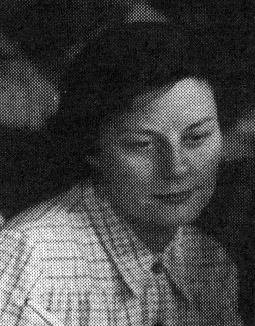
Bettie du Toit OLS was a trade unionist and anti-apartheid activist in South Africa.
Phyllis Altman was a trade unionist and anti-apartheid activist in South Africa. Altman was an employee of the South African Congress of Trade Unions (SACTU). She was also the general secretary of the International Defence and Aid Fund (IDAF), and a fiction writer.

Sonia Bunting, OLS was a South African journalist, and a political and anti-apartheid activist. After being charged with treason and imprisoned, being detained a second time, and barred from publishing, she and her husband went into exile in London, where she joined the Anti-Apartheid Movement (AAM) and organised the World Campaign for the Release of South African Political Prisoners. When the African National Congress (ANC) ban was lifted in 1991, she returned to South Africa where she was involved in political activism until her death in 2001. She was posthumously honored by the government of South Africa with the Order of Luthuli in Silver in 2010.
References
- 1 2 3 4 5 6 7 8 9 10 11 "Freda Levson". South African History Online. Retrieved 1 January 2020.
- 1 2 3 4 5 6 7 Joseph, Paul (28 October 2004). "Freda Levson: Fighting Apartheid Through Fundraising". The Guardian. ISSN 0261-3077 . Retrieved 1 January 2020.
- 1 2 "White and Black in South-West Africa". The Age. 27 May 1950. p. 7. Retrieved 2 January 2020– via Newspapers.com.
- ↑ Perham, Margery (14 May 1950). "Black and White". The Observer. p. 7. Retrieved 2 January 2020– via Newspapers.com.
- ↑ Skinner, Rob (2010). The Foundations of Anti-Apartheid: Liberal Humanitarians and Transnational Activists in Britain and the United States, c.1919-64. Springer. p. 89. ISBN 978-0-230-30908-1.
- ↑ Driver, C. J. (1980). Patrick Duncan: South African and Pan-African. Oxford: James Currey Publishers. p. 98. ISBN 978-0-85255-773-0.
- ↑ "Participants in African Civil Disobedience Campaign Fines". Alabama Tribune. 13 February 1953. p. 4. Retrieved 2 January 2020– via Newspapers.com.
- ↑ Buthelezi, Jabulani (2002). Rolihlahla Dalibhunga Nelson Mandela. Amashenge Publishers. p. 114. ISBN 978-1-4122-5015-3.
- 1 2 "Playwrights Against Apartheid, with letters from Dennis Brutus and Samuel Beckett". The British Library. Retrieved 2 January 2020.